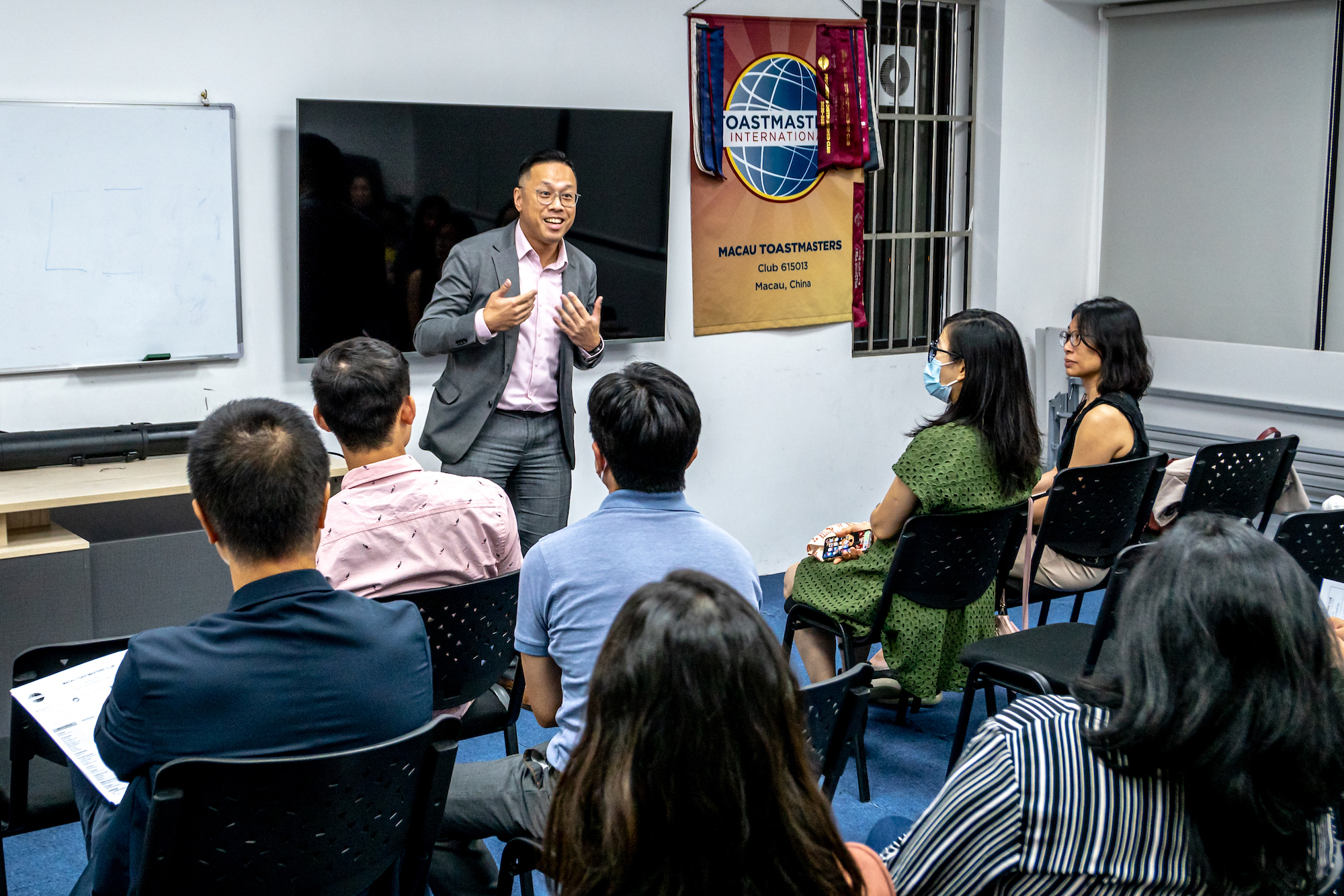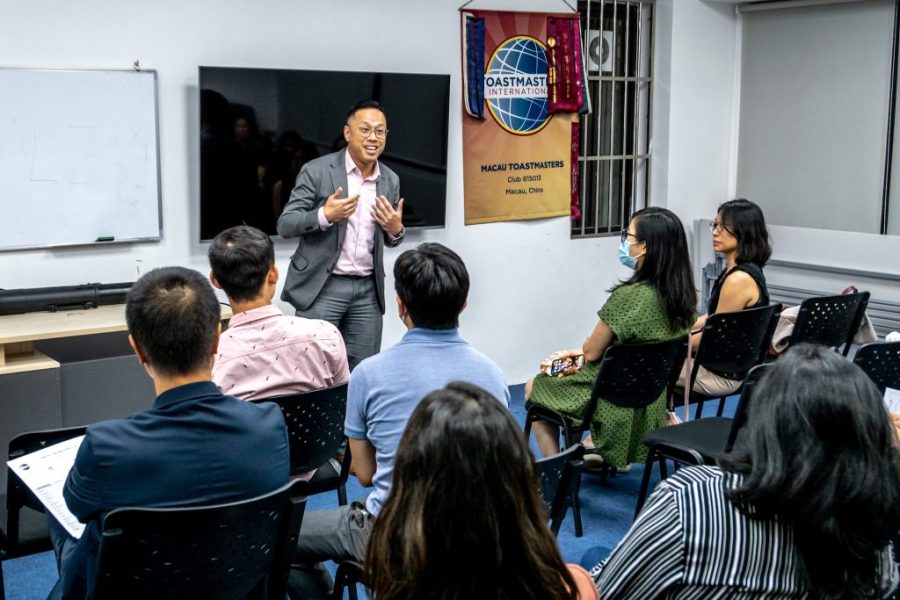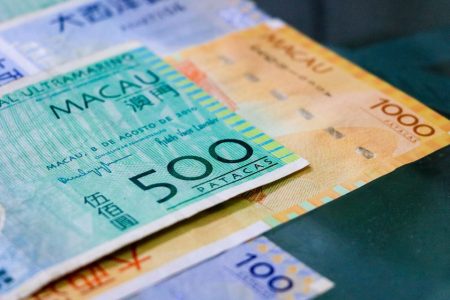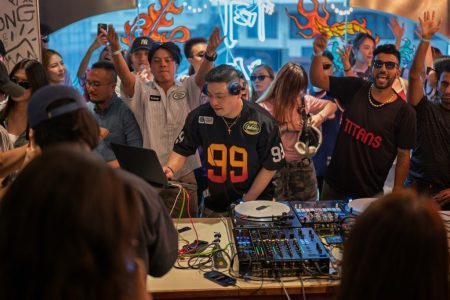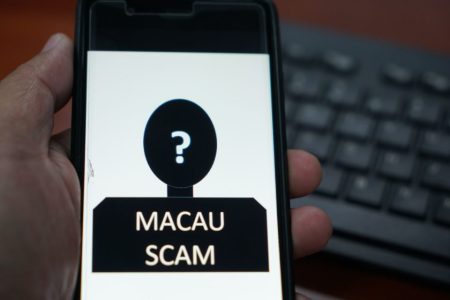In 1983, a 30-year-old Canadian named Herbert Lee arrived in Macao to open one of the city’s first computer companies. Lee’s job was exporting IBM PCs to mainland China, but in his spare time he hoped to join an English-speaking association of some sort – like Toastmasters, a club he’d belonged back home. A ‘toastmaster’ is a person responsible for making announcements at banquets and other events.
Toastmasters International (TI) is a global non-profit organisation headquartered in the US that promotes and teaches communication skills, public speaking, and leadership informally, through practice and experience. Its 360,000 members belong to more than 16,000 clubs worldwide.
Finding no such community in Macao, Lee tried building his own. He ran an advertisement in a local Chinese-language newspaper but alas, nobody showed up. “People say, ‘I don’t have enough confidence to speak English in public so I can’t join Toastmasters,’” Lee says. “But the formula should be the opposite. When you speak, you gain confidence.”
Feeling defeated, Lee joined an official Toastmasters club in Hong Kong instead.
In 2003, encouraged by his Hong Kong Toastmasters mates, Lee made an attempt at establishing a Macao branch of the club. Somewhat motivated by the convenience it would bring himself – no more commuting to Hong Kong – Lee also wanted to help people in Macao improve their English. This time, he succeeded.
A new chapter begins
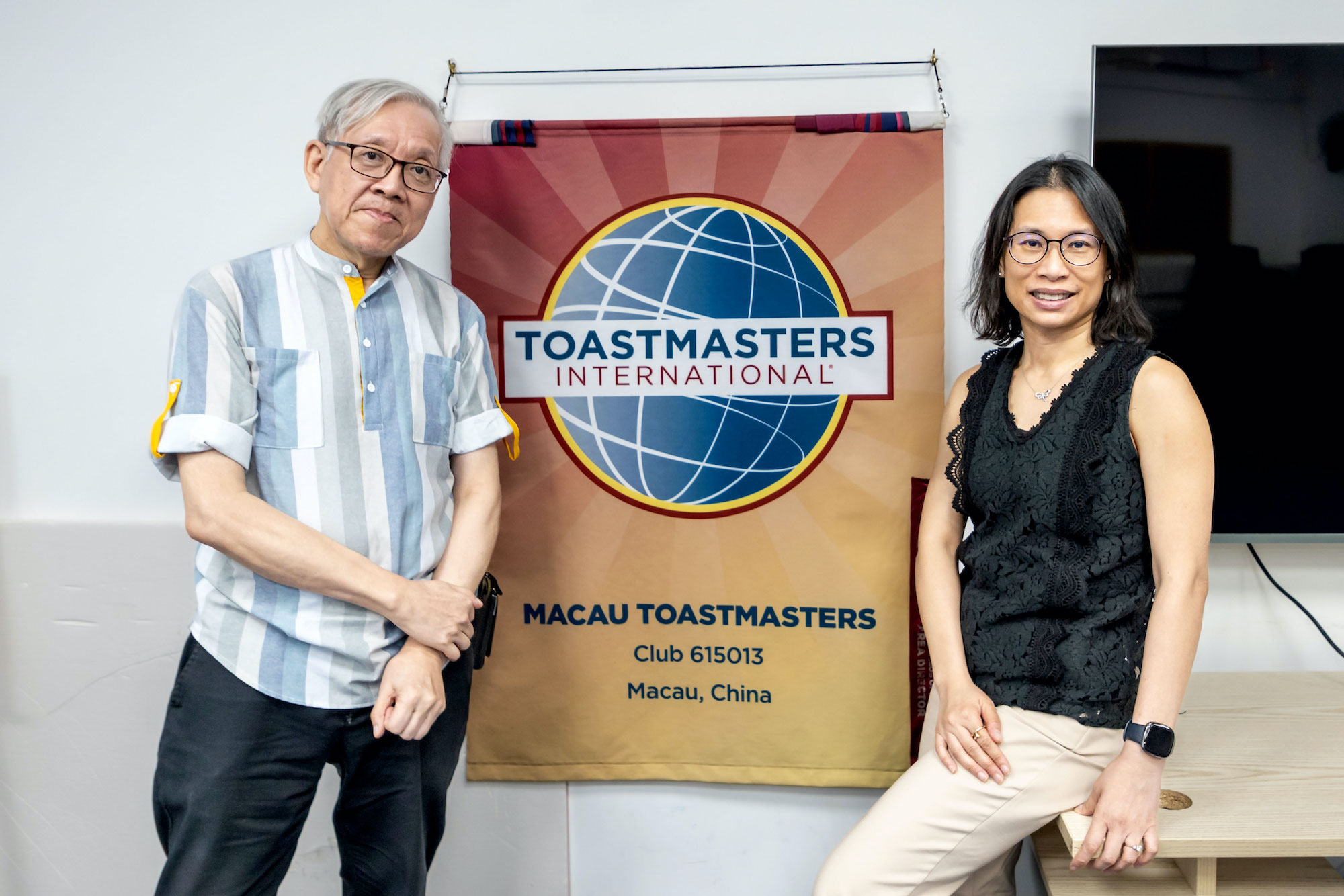
The club started off small, then swelled alongside the city’s rapidly growing gaming industry as English-language skills became more important in the city.
“The [original] club was quite young,” remembers Lee, now a 69-year-old English teacher and a published author still living in Macao. “It was a jovial and fun kind of club, then we started having accountants, doctors and lawyers joining.’’ In 2006, the club split in two. Today, the original Macau Toastmasters Club is geared more towards experienced professionals, says its current President, Winnie Ho.
Ho, 49, is the Assistant Vice President of Digital and Technology Solutions of MGM Grand Paradise Limited. She joined the Macau Toastmasters Club 11 years ago, after a work presentation went awry. “I was too nervous and forgot what to say,” Ho recalls, with a smile. “I lost the audience’s attention. I could see them looking at their watches and phones and I realised I needed to improve my presentation and public speaking skills.”
A friend introduced her to Toastmasters, which eventually got Ho speaking confidently in public “without my hands shaking.”
The newer Macau Professional and Graduates Toastmasters Club (PAG) has a younger membership and more emphasis on networking. The PAG’s President Desmond Yap, 40, describes Toastmasters as “a safe domain to practise public speaking and receive feedback.” Yap, who is the Business Development Manager of JML Property, joined the club in 2020.
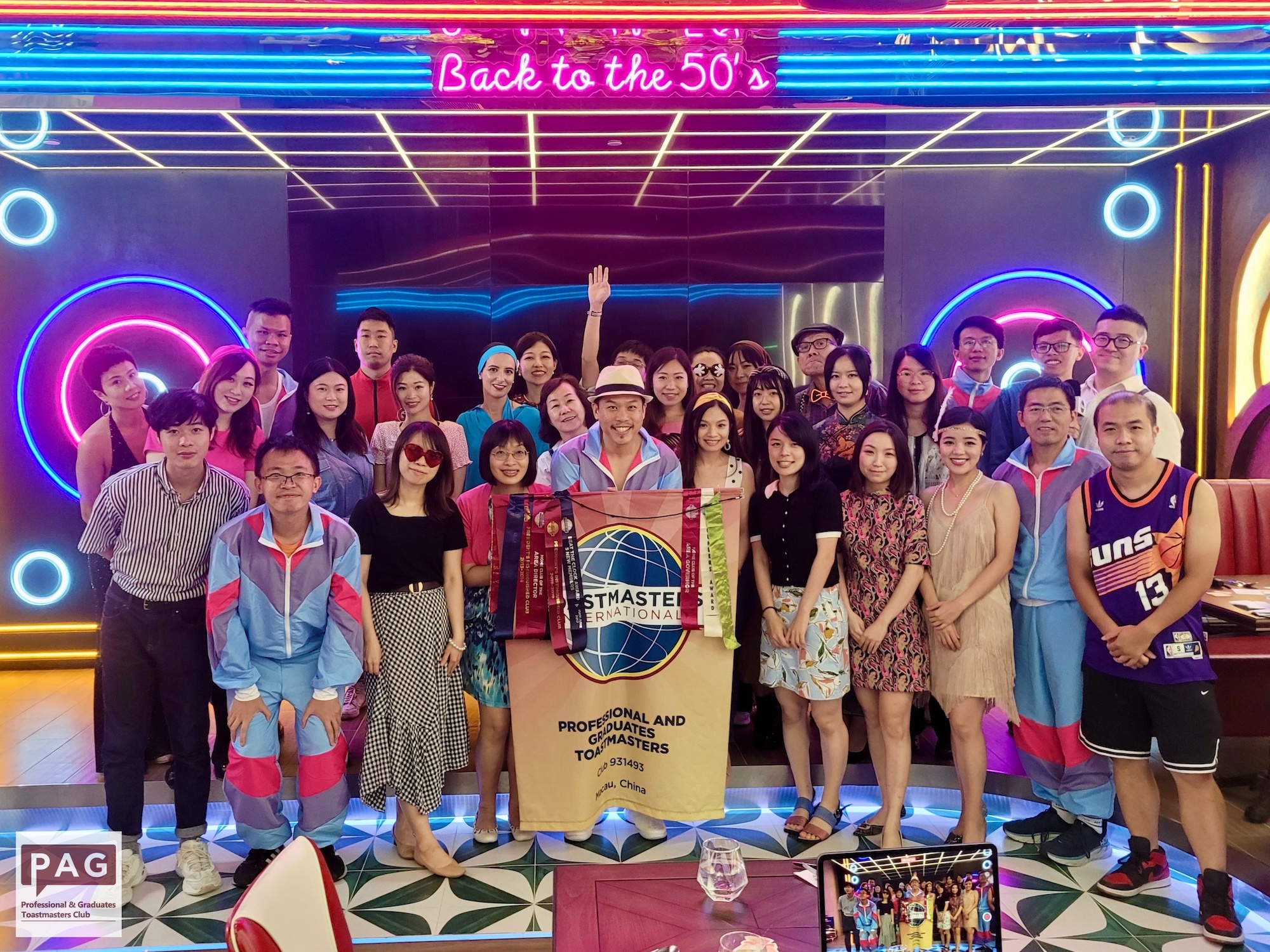
“Practise makes perfect,” he says. “Whether practising with friends or through organised clubs, every opportunity to elevate your communication skills will find a way to reap benefits eventually.”
Toastmasters in Macao today
The city’s three other Toastmasters clubs are the bilingual University of Macau Toastmasters Club (also known as UMAC Toastmasters), Macau Cantonese Toastmasters Club and Macau Mandarin Toastmasters Club. The five clubs join forces for an occasional Open Day, where people can learn more about the Toastmasters community.
The regular meetings are “where leaders are made”, however – in line with TI’s slogan. Most clubs meet twice a month. Three pre-selected members deliver five to seven-minute-long speeches on topics as diverse as “Back to School Memories”, “Embracing Change in Life”, and “World Mental Health Day”. They are evaluated by pre-assigned club members for English language proficiency, how well they kept within the time limit, and the use of filler words like ‘um’, ‘hmm’, and ‘ah’ (Toastmasters appoints so-called ‘ah-counters’ for this).
Everyone else gets an opportunity to deliver a self-introduction speech (up to two minutes). Ho says this gives newbies “a taste of how it feels to speak in front of everyone.”
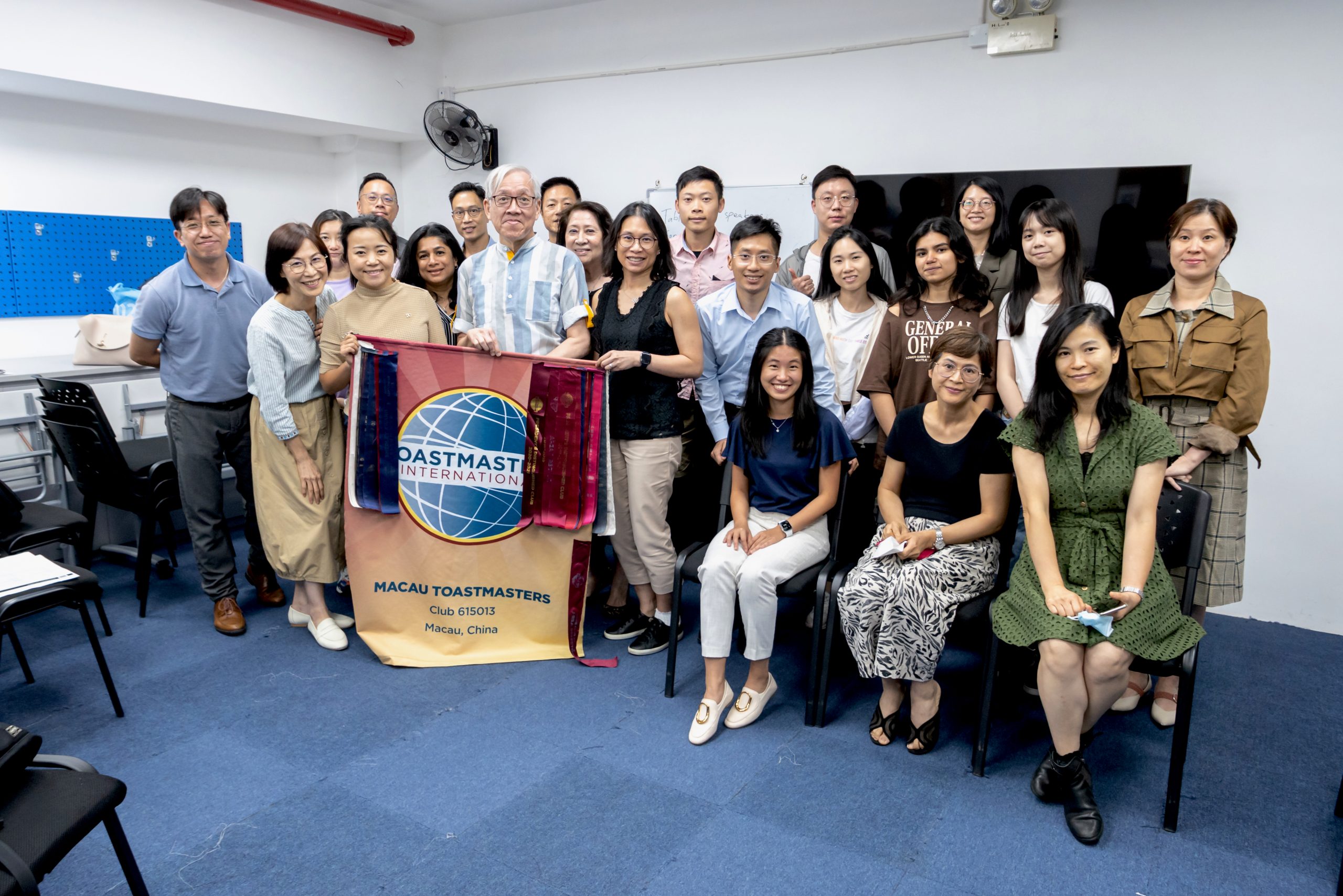
In a segment called Table Topics, attendees volunteer to make two-minute impromptu speeches answering questions in line with the night’s topic, prepared by the pre-assigned host. For World Mental Health Day, questions included: “Would you like to know the precise date of your death?”, “What have you struggled with in the past but learnt to live with?” and “When did you last yell at someone?”.
Toastmasters meetings are casual, yet well-structured. Each meeting is a learn-by-doing workshop without a formal instructor, where members take charge under guidance from the president.
While meetings are typically held in person, pandemic restrictions have forced them online from time-to-time over the past few years. “Online presentation is so much more difficult because you do not have [direct] feedback and I don’t know if you’re looking at me or checking your phone,” Ho says.
People tend to join a Toastmasters Club when their career “starts taking off”, says Ho. They find themselves needing to speak up more often, present in public, and explain complex concepts. “That’s when they realise their communication skills are not enough.”
In spite of Covid-19, most Toastmasters clubs in Macao have attracted new members each year since the pandemic began. Today, each of the five clubs has between a dozen and several dozen members. There is no limit on the number of members a club can have, but there are a finite number of roles members can play during each get-together. “We really want to get the right number of members so each of them can have a fair chance to participate,” stresses Ho.
As Macao’s Toastmasters community grows, Lee – the club’s original champion – has been dubbed the city’s “Grandfather of Toastmasters’. This makes him chuckle: “With age you get something, I guess.”
Macao’s Cantonese and Mandarin Toastmasters
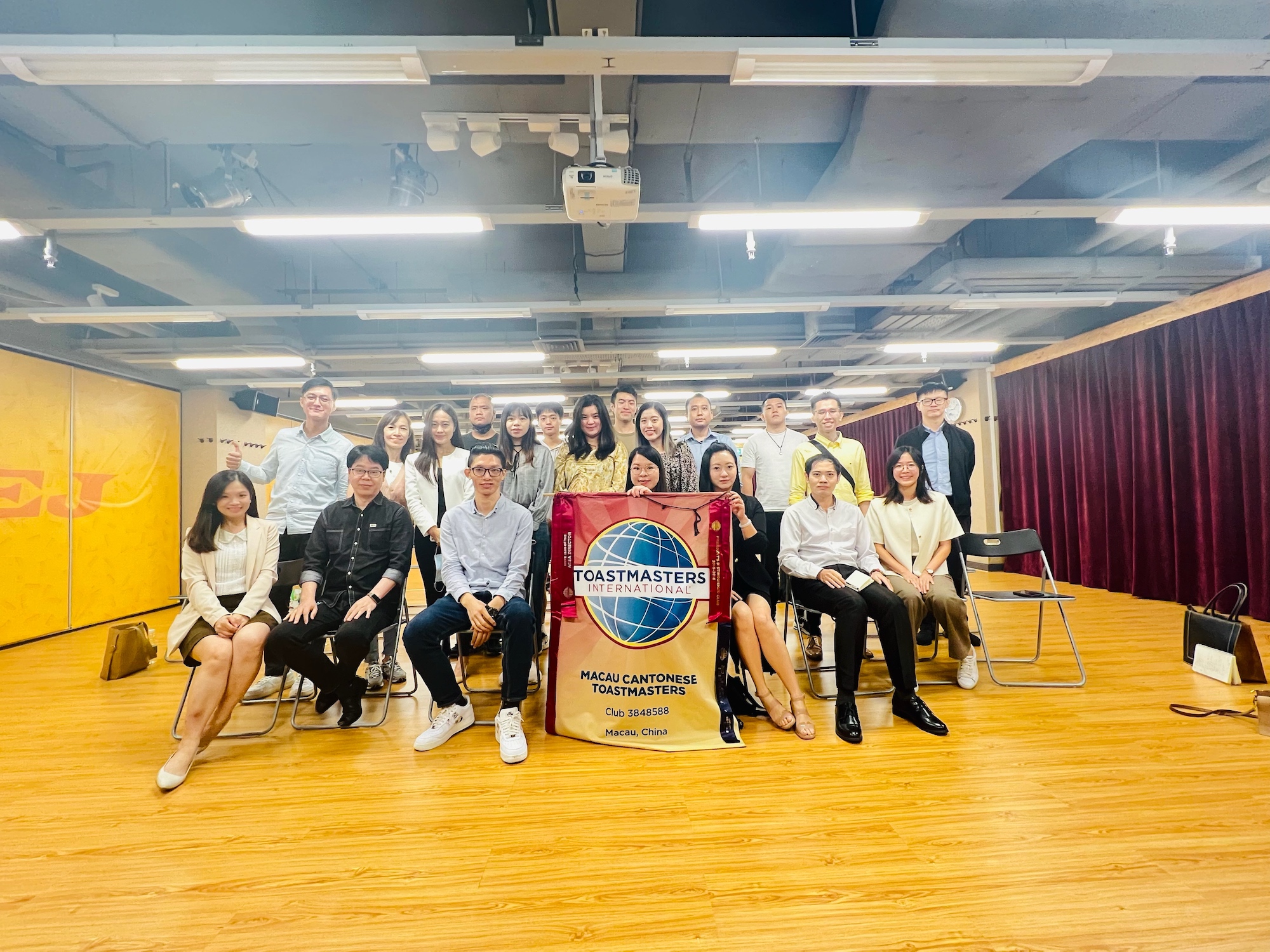
While the city’s Toastmasters community began with an English-only club, the newer Cantonese and Mandarin clubs are equally popular. They help people improve their Chinese language skills in the same way the other clubs help with English.
Macau Cantonese Toastmasters Club has 43 members, while Macau Mandarin Toastmasters Club has just 15. Their members are a diverse range of professionals, including bankers, doctors, and NGO workers, as well as people in the gaming, media, and hospitality industries.
Eragon Fong Chan Fai, president of the smaller Mandarin club, says getting Macao locals to join is challenging. “Many of them think their Mandarin skills are not good enough, so they are hesitant to speak Mandarin,” he says. Fong also wants to attract more native speakers to the club.

Freda Lei Oi In is the president of the Cantonese club and a big advocate of Toastmasters. “The communication skills it teaches are beneficial for us in terms of our jobs, friendships and other relationships, as well as preparing for the future,” she says.
“I used to be a shy person and lacked confidence. Toastmasters has allowed me to get to know more new people, and practise my public speaking and organisational skills. I have become more confident and positive.”
The Mandarin club can be contacted via WeChat account Eragon 869504848 while the other four local Toastmasters clubs can be reached through their Facebook pages.
5 facts about Toastmasters
- Ralph C. Smedley started Toastmasters International (TI) as a men-only club in 1924, in Santa Ana, California.
- It admitted its first woman member in 1970, under a male pseudonym, and has officially welcomed women as members since 1973.
- Today, nearly 70 per cent of TI’s 360,000 members are based in India and China.
- Most TI clubs around the world are English-speaking but materials are also available in various other languages, including Chinese, French and Spanish. In addition to some non-English clubs, there are a number of bilingual clubs – such as UMAC’s.
- Toastmasters members must be 18 years old or older. Guests can be of any age.
